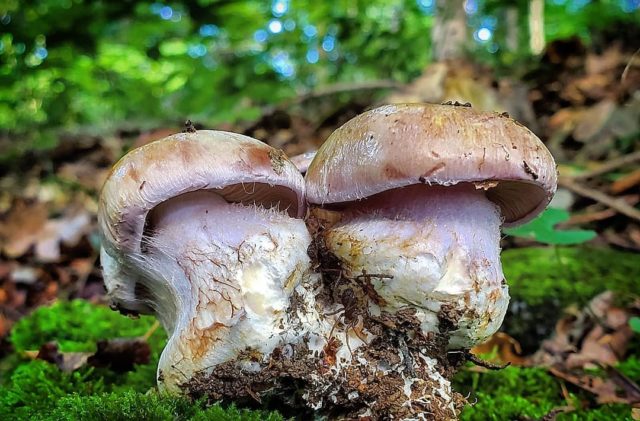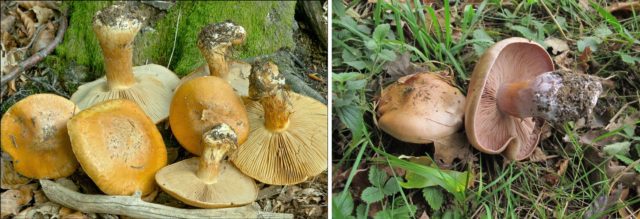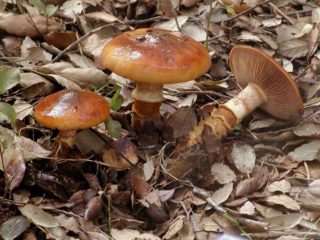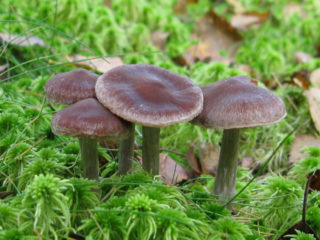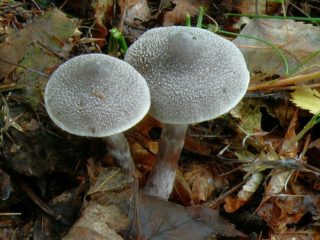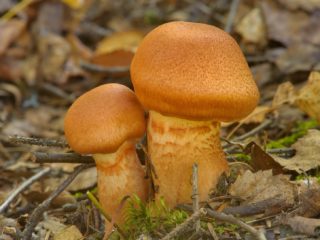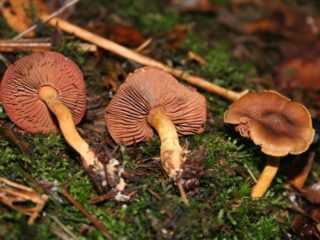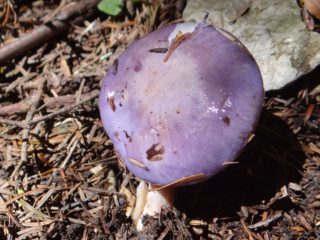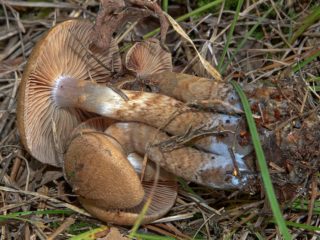Content
The centipede webcap (Cortinarius glaucopus) is a rather rare lamellar fungus of the Cortinariaceae family. It grows in almost any forest plantation. It got its name from the original color of the leg.
Description of the cobweb of the centipede
The centipede cobweb is a fruiting body with a smooth brown cap with a gray fibrous stem.
Description of the hat
The hat is hemispherical or convex. As it grows, it becomes prostrate, with a small funnel in the center. The edges are wavy, slightly curled down. Its surface is smooth, slippery to the touch. The color ranges from reddish to green-brown.
The pulp is very dense. In the cap and upper part of the leg, it is yellow, in the lower part it is blue. The plates are rare, adherent. At a young age, they are gray-purple, at the stage of full maturity they are brown.
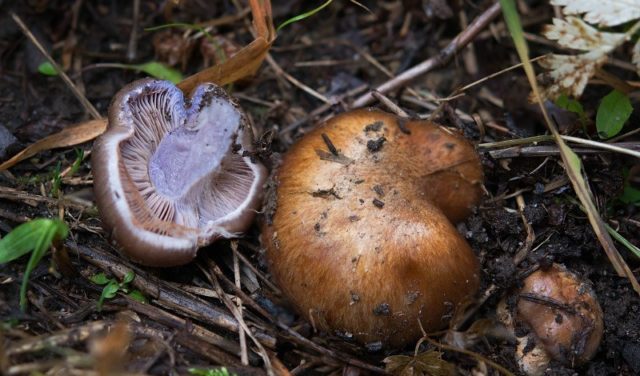
Top and bottom view
Leg description
Fibrous, silky, long (about 9 cm) and rather thick (about 3 cm). Its shape is cylindrical, expanding at the base. In the upper part, the color is gray-lilac, below it is greenish-lilac.
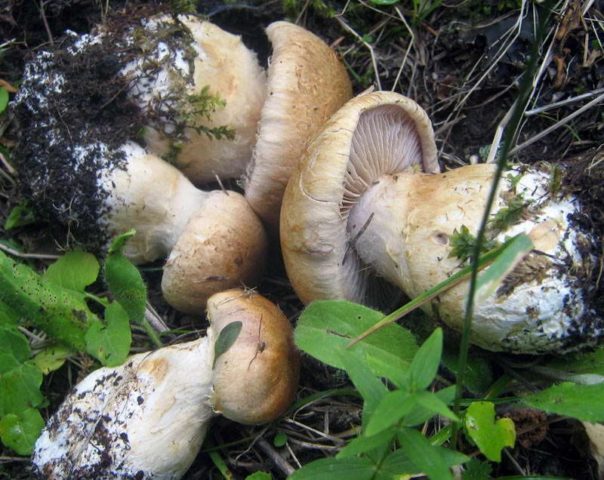
Fibrous stem with a thickening at the bottom
Where and how it grows
The centipede cobweb grows both singly and in small groups. It is found in deciduous, coniferous and mixed forests of the eastern part of Russia. Fruiting lasts from early August to late September.
Is the mushroom edible or not
The mushroom is classified as conditionally edible. Basically, they eat the hat, which is considered the most edible part of it. Used to prepare second courses, pickled and salted. Does not have a high nutritional value. In its raw form, it is tasteless, with a mild unpleasant (musty) odor.
Doubles and their differences
The centipede spider web differs from its counterparts in the characteristic color of the leg, only inherent in it. The main difference is the whitish lower part with a bluish or pinkish tint. Therefore, in nature there are no twins with which this mushroom could be confused.
Conclusion
The cobweb is a conditionally edible mushroom that requires preliminary processing. It is strictly forbidden to use it raw. Suitable for pickling, it is too hard when dried and fried. It differs from other mushrooms in the color of the leg, bluish with a pink-blue tint.
